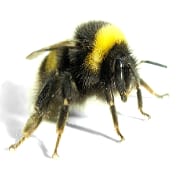Loss of Insect Pollinators Threatens Tropical Crops, Warns Study
A recent study led by researchers from the University College London and the Natural History Museum has raised concerns about the potential crisis facing tropical crops like coffee, cocoa, watermelon, and mango due to the declining population of insect pollinators. The study highlights that altered climate and changes in land-use patterns are leading to a reduction in insect pollinators, posing a significant threat to key tropical crops.
Factors Driving Pollinator Decline
Habitat destruction, improper land-use (including grazing, monoculture farming, and high pesticide use), and the use of fertilizers were identified as the primary factors contributing to the decline of insect pollinators.
Study Methodology
- The study analyzed a dataset comprising 2,673 sites and 3,080 insect pollinator species to assess the combined impacts of climate change and agricultural activities on insect pollinators.
- Researchers evaluated which pollination-dependent crops were most vulnerable until 2050, with a particular focus on tropical regions.
Key Findings
- Insect pollinators for crops declined by 61%, with the most significant impact observed in tropical regions.
- The highest risk to crop production from pollinator losses was projected to be in sub-Saharan Africa, South America, and Southeast Asia.
- Countries such as China, India, Indonesia, Brazil, and the Philippines were identified as being at the greatest risk in terms of total production potentially affected.
- Cocoa, particularly in Africa, mango in India, and watermelon in China were highlighted as the most at-risk crops.
- The loss of pollinators could result in increased income insecurity for millions of small-scale farmers in vulnerable regions.
Importance of Pollinators
- Approximately 75% of the world’s flowering plants and 35% of food crops rely on animal pollinators for reproduction.
- Pollinators inadvertently transfer pollen from one flower to another during their quest for nectar and pollen, facilitating fruit and seed production.
Month: Current Affairs - October, 2023
Category: Environment Current Affairs








